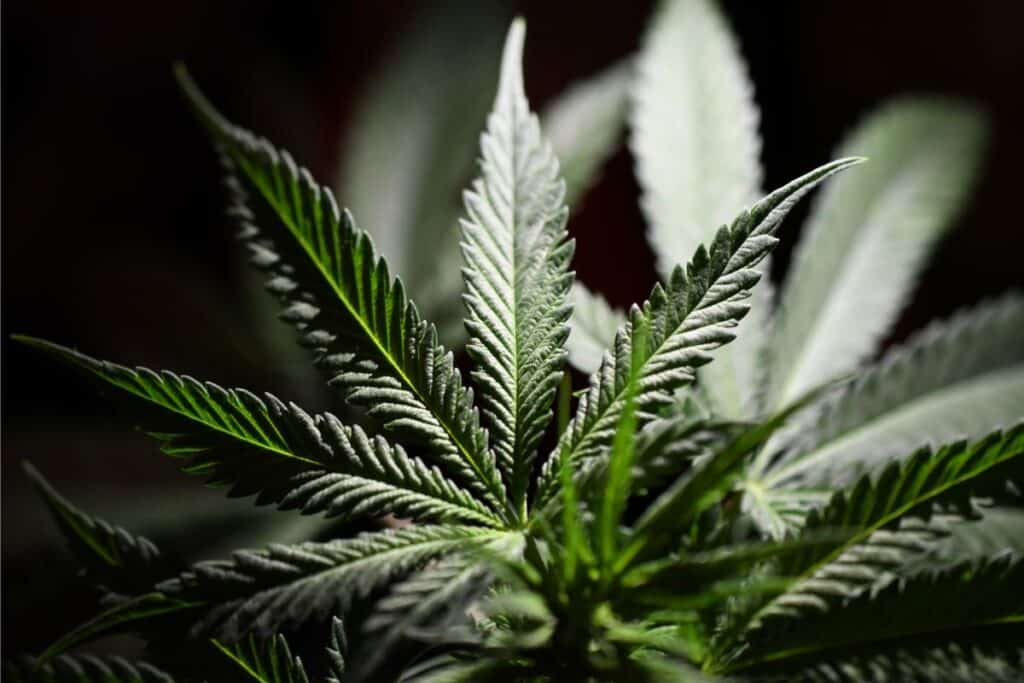Finding natural and effective ways to enhance sleep, support weight loss, and promote muscle growth is a priority for many individuals. Delta-8 and delta-9, two compounds derived from the cannabis plant, have gained attention for their potential therapeutic benefits in these areas.
However, it is crucial to understand the legal landscape surrounding these substances and how they differ. This article will explore using legal delta-8 or delta-9 with less than 3% THC to aid sleep, facilitate weight loss, or enhance muscle growth. Additionally, we will provide an overview of the states where delta-8, delta-9, and THC are legal and illegal.
Understanding Delta-8 and Delta-9:
Delta-8 and delta-9 are both cannabinoids found in the cannabis plant. These compounds interact with the body’s endocannabinoid system, which regulates various physiological functions—the key difference lies in their chemical structures. Delta-8 THC has a double bond on the eighth carbon atom in its molecular chain. In contrast, delta-9 THC has the same bond on the ninth carbon atom—this slight variation in structure results in differences in their psychoactive properties and potency.
Delta-8 THC: A Legal Alternative
Delta-8 THC has become a legal alternative to traditional delta-9 THC due to its milder psychoactive effects. It offers a more subtle high while still delivering potential therapeutic benefits. Many users report that delta-8 provides relaxation, stress relief, and improved sleep quality without the intense intoxication often associated with delta-9 THC.
Using Delta-8 or Delta-9 for Sleep Aid:
Both delta-8 and delta-9 THC have shown promise in aiding sleep. The relaxing properties of these cannabinoids may help individuals struggling with insomnia or other sleep-related issues. However, starting with a low dosage and assessing individual tolerance is essential. Delta-8 and delta-9 THC products, such as tinctures, edibles, or vaporizers, can be consumed approximately 1-2 hours before bedtime to promote a calming effect conducive to a good night’s sleep.
Delta-8 or Delta-9 for Weight Loss:
While more research is needed, some studies suggest that cannabinoids like delta-8 and delta-9 may play a role in weight management. These compounds potentially influence appetite regulation, metabolism, and the body’s energy balance. Incorporating legal delta-8 or delta-9 THC products with low THC content into a balanced diet and exercise regimen may support weight loss efforts. However, it is important to note that these products should not be used solely for weight loss and must be used responsibly.
Delta-8 or Delta-9 for Muscle Growth:
Cannabinoids have been studied for their potential benefits in muscle growth and recovery. Both delta-8 and delta-9 THC can potentially reduce inflammation, alleviate pain, and aid in post-workout muscle recovery. Some individuals find that incorporating these compounds into their routine helps enhance their fitness goals. However, as with any supplementation, it is advisable to consult with a healthcare professional before incorporating delta-8 or delta-9 THC products into your fitness regimen.
Legal Status Across States:
The legality of delta-8, delta-9, and THC varies across states in the United States. As of the time of writing, the following information applies, but it is important to check for the most up-to-date legal information in your specific location:
- Delta-8 THC: Some states have explicitly legalized delta-8 THC, while others have banned it, or its sale is in a legal gray area. Researching and complying with your state’s regulations before using or purchasing delta-8 THC products is essential.
- Delta-9 THC: Delta-9 THC remains a controlled substance under federal law. However, several states have legalized its recreational and medicinal use. The legal status of delta-9 THC varies from state to state, so it is crucial to understand the specific laws and regulations in your area.
- THC: THC, the primary psychoactive compound in cannabis, is still illegal at the federal level. However, several states have legalized its use for medicinal and recreational purposes.
State Laws
Below is a list of the 50 states alphabetically, along with their laws regarding marijuana, hemp, and THC as of September 2021. Please note that laws surrounding cannabis can change frequently, and it’s essential to verify the most up-to-date information from official sources or consult legal professionals.
- Alabama: Medical CBD oil is allowed for certain qualifying conditions.
- Alaska: Recreational and medical marijuana is legal.
- Arizona: Recreational and medical marijuana is legal.
- Arkansas: Medical marijuana is legal.
- California: Recreational and medical marijuana is legal.
- Colorado: Recreational and medical marijuana is legal.
- Connecticut: Medical marijuana is legal.
- Delaware: Medical marijuana is legal.
- Florida: Medical marijuana is legal.
- Georgia: Medical CBD oil is allowed for certain qualifying conditions.
- Hawaii: Recreational and medical marijuana is legal.
- Idaho: Marijuana is illegal for both recreational and medical use.
- Illinois: Recreational and medical marijuana is legal.
- Indiana: Marijuana is illegal for both recreational and medical use.
- Iowa: Medical CBD oil is allowed for certain qualifying conditions.
- Kansas: Medical CBD oil is allowed with no more than 5% THC.
- Kentucky: Medical CBD oil is allowed with no more than 0.3% THC.
- Louisiana: Medical marijuana is legal.
- Maine: Recreational and medical marijuana is legal.
- Maryland: Medical marijuana is legal.
- Massachusetts: Recreational and medical marijuana is legal.
- Michigan: Recreational and medical marijuana is legal.
- Minnesota: Medical marijuana is legal.
- Mississippi: Medical marijuana is legal.
- Missouri: Medical marijuana is legal.
- Montana: Recreational and medical marijuana is legal.
- Nebraska: CBD oil with no more than 0.3% THC is allowed for certain qualifying conditions.
- Nevada: Recreational and medical marijuana is legal.
- New Hampshire: Medical marijuana is legal.
- New Jersey: Recreational and medical marijuana is legal.
- New Mexico: Recreational and medical marijuana is legal.
- New York: Recreational and medical marijuana is legal.
- North Carolina: Medical CBD oil is allowed for certain qualifying conditions.
- North Dakota: Recreational and medical marijuana are legal.
- Ohio: Medical marijuana is legal.
- Oklahoma: Medical marijuana is legal.
- Oregon: Recreational and medical marijuana is legal.
- Pennsylvania: Medical marijuana is legal.
- Rhode Island: Recreational and medical marijuana is legal.
- South Carolina: Medical CBD oil is allowed for certain qualifying conditions.
- South Dakota: Both recreational and medical marijuana is legal.
- Tennessee: Medical CBD oil is allowed for certain qualifying conditions.
- Texas: Medical CBD oil is allowed for certain qualifying conditions.
- Utah: Medical CBD oil is allowed for certain qualifying conditions.
- Vermont: Recreational and medical marijuana is legal.
- Virginia: Both recreational and medical marijuana is legal.
- Washington: Recreational and medical marijuana is legal.
- West Virginia: Medical marijuana is legal.
- Wisconsin: Medical CBD oil is allowed for certain qualifying conditions.
- Wyoming: CBD oil with no more than 0.3% THC is allowed for certain qualifying conditions.
Popular Methods of Ingestion
The best ways to consume delta-8 or delta-9 THC largely depend on personal preference and desired effects. Here are some popular methods of ingestion:
- Edibles: Edibles offer a discreet and long-lasting way to consume delta-8 or delta-9 THC. These products include gummies, chocolates, baked goods, and beverages infused with THC. Edibles take longer to kick in as they must pass through the digestive system, but the effects tend to be more potent and longer-lasting.
- Sublingual Administration: Sublingual products, such as tinctures or oils, are placed under the tongue for absorption through the mucous membranes. This method allows for relatively fast onset and controlled dosing. It is essential to hold the product under the tongue for the recommended time before swallowing for maximum effectiveness.
- Topicals: Topical products infused with delta-8 or delta-9 THC are applied directly to the skin and are primarily used for localized relief. These products can include creams, lotions, balms, or patches. Topicals offer targeted relief for muscle soreness, inflammation, or skin conditions without producing psychoactive effects.
- Capsules: Delta-8 or delta-9 THC capsules or pills provide a convenient and precise method of consumption. Similar to traditional medication, capsules are ingested orally and offer consistent dosing. Effects may take longer to manifest due to digestion, but they provide a discreet and controlled experience.
- Inhalation/Vaping: Inhaling delta-8 or delta-9 THC through vaporization is a common method due to its fast onset of effects. Vaporizers heat the product, releasing the cannabinoids as inhalable vapor. Vaping provides quick absorption into the bloodstream, resulting in faster effects. Though it is faster, we recommend not exposing the lungs to inhalation or vaping.
It’s essential to start with a low dosage and gradually increase it to gauge individual tolerance and find the optimal amount for desired effects. Additionally, considering the legality of delta-8 and delta-9 THC products in your jurisdiction is crucial, as laws can vary. Consulting with a healthcare professional or knowledgeable budtender can provide further guidance on suitable consumption methods and appropriate dosages for your needs.
Conclusion
Legal delta-8 and delta-9 THC products with less than 3% THC offer potential sleep aid, weight loss, and muscle growth benefits. However, it is vital to understand the legal landscape in your state and use these compounds responsibly.
Always consult a healthcare professional before incorporating any new supplement into your routine. As research in this field continues to evolve, staying informed about the latest findings and legal developments surrounding delta-8, delta-9, and THC is essential.



